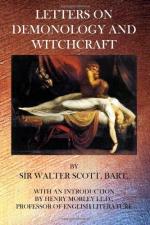|
This section contains 1,998 words (approx. 7 pages at 300 words per page) |

|
Social Anthropology of Witchcraft
Summary: A critical examination on how anthropologists use examples of witchcraft in different societies to comment upon the rationality debate.
The average Western person does not generally regard witchcraft as something `rational'. Magic spells, tarot cards, voodoo dolls and even simple superstitions are not considered to be scientific and therefore regarded as illogical, primitive and sometimes even seen as plainly ridiculous. Does this make Western society more civilised and enlightened than societies where witchcraft continues to operate as a practise and a belief system, or is such a view merely arrogant and ethnocentric? Within social anthropology there is a debate as to whether rational thought is something that modern civilisation has developed with science, bringing human thought away from illogical fears and superstitions into an era of logical thought and enlightenment, or whether human beings have always been rational in their thought processes. The phenomenon of witchcraft, both old and modern, provides a topic that is very useful when arguing about the rationality of human thought and belief...
|
This section contains 1,998 words (approx. 7 pages at 300 words per page) |

|


